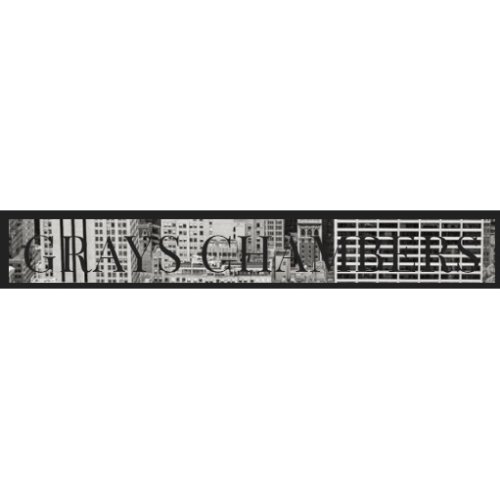Best International Trade Law Lawyers in Dhaka
Share your needs with us, get contacted by law firms.
Free. Takes 2 min.
List of the best lawyers in Dhaka, Bangladesh

M. Elahi & Associates - A Registered Law Firm in Bangladesh
30 minutes Free ConsultationAbout International Trade Law in Dhaka, Bangladesh
International Trade Law in Dhaka, Bangladesh, represents a crucial segment of the legal system, focusing on regulating and facilitating trade and commerce across international borders. This field encompasses a variety of laws, treaties, regulations, and agreements that dictate how trade is conducted and ensure compliance with international standards. In Dhaka, International Trade Law is influenced by global trade regulations, such as those established by the World Trade Organization (WTO), and is tailored to fit the country's economic policies and trade objectives. The legal infrastructure ensures fair trade practices, dispute resolution, and compliance with international standards, making it essential for businesses involved in cross-border commerce.
Why You May Need a Lawyer
There are several situations in which individuals or businesses might require legal assistance in the field of International Trade Law in Dhaka, Bangladesh:
- Negotiating and drafting international trade contracts.
- Understanding and complying with import/export regulations and duties.
- Resolving disputes that arise from international trade transactions.
- Advising on trade-related matters such as tariffs, quotas, and anti-dumping measures.
- Ensuring compliance with international trade agreements and treaties.
- Navigating trade finance and letters of credit.
- Seeking representation in trade-related litigation or arbitration.
Local Laws Overview
Several key aspects of local laws in Dhaka are particularly relevant to International Trade Law:
- Import/Export Regulations: Governed by the Import and Export Control Act, 1950, these regulations specify the rules for importing and exporting goods, including licensing and customs duties.
- Customs Act, 1969: This act outlines the procedures for customs declaration, valuation, and examination of goods at Bangladeshi ports.
- Anti-Dumping and Countervailing Duties: Laws designed to protect local industries from unfair competition by imposing additional duties on imported goods that are subsidized or below normal value.
- Foreign Exchange Regulation: Governed by the Foreign Exchange Regulation Act, 1947, these laws control the payment and receipt of foreign currencies, essential for international trade operations.
- Arbitration Act, 2001: Facilitates the resolution of trade disputes through arbitration, making it a vital instrument for international traders seeking efficient dispute resolution mechanisms.
Frequently Asked Questions
What is the role of a trade lawyer in international transactions?
A trade lawyer assists with negotiating trade agreements, ensuring compliance with international norms, advising on legal risks, and representing clients in disputes.
How can I ensure compliance with Bangladeshi import/export regulations?
Engage a competent trade lawyer to understand the Import and Export Control Act requirements and facilitate the necessary licensing and documentation.
What steps should I take if my goods are held at customs?
Contact a trade lawyer immediately to understand the reasons for detention and facilitate communication with customs authorities for resolution.
What is anti-dumping, and how can it affect my business?
Anti-dumping refers to measures taken against imports sold below fair market value to protect local industries. It may result in additional duties on imported goods.
How are trade disputes resolved in Bangladesh?
Trade disputes can be resolved through litigation in courts or arbitration, as outlined in the Arbitration Act, 2001, which provides a quicker resolution process.
Are there any incentives for exporters in Bangladesh?
Yes, Bangladesh offers various incentives, such as duty drawbacks, cash incentives, and tax reductions, to promote exports.
How do trade agreements impact my business?
Trade agreements can influence tariffs, quotas, and customs procedures, which can affect your costs, market access, and competitive positioning.
What is the significance of INCOTERMS in international trade?
INCOTERMS are standardized international commercial terms that define responsibilities and risks of parties in international contracts, facilitating clear understanding and minimizing disputes.
How do I handle a breach of contract with a foreign supplier?
Consult with a trade lawyer to evaluate the breach and determine the most suitable course of action, which could involve negotiation, mediation, or legal action.
Can I conduct international trade without a lawyer?
While it's possible, it is not advisable as international trade involves complex legal frameworks. A lawyer ensures compliance and protects your interests.
Additional Resources
For further assistance and information, you may consider the following resources:
- Bangladesh Ministry of Commerce: Offers regulatory guidance and support for businesses engaged in international trade.
- Bangladesh Customs Service: Provides information on customs procedures, duties, and import/export regulations.
- Export Promotion Bureau: Supports local exporters with market access and promotional activities.
- Dhaka Chamber of Commerce & Industry (DCCI): Offers networking opportunities and policy advocacy for businesses.
Next Steps
If you need legal assistance in International Trade Law in Dhaka, Bangladesh, here are the steps you can follow:
- Identify specific legal needs relating to your international trade activities.
- Consult with an experienced international trade lawyer to discuss your needs and seek advice.
- Gather all relevant documentation and information related to your trade issues to provide to your lawyer.
- Engage the lawyer’s services to ensure compliance, protect your interests, and facilitate smooth trade operations.
Lawzana helps you find the best lawyers and law firms in Dhaka through a curated and pre-screened list of qualified legal professionals. Our platform offers rankings and detailed profiles of attorneys and law firms, allowing you to compare based on practice areas, including International Trade Law, experience, and client feedback.
Each profile includes a description of the firm's areas of practice, client reviews, team members and partners, year of establishment, spoken languages, office locations, contact information, social media presence, and any published articles or resources. Most firms on our platform speak English and are experienced in both local and international legal matters.
Get a quote from top-rated law firms in Dhaka, Bangladesh — quickly, securely, and without unnecessary hassle.
Disclaimer:
The information provided on this page is for general informational purposes only and does not constitute legal advice. While we strive to ensure the accuracy and relevance of the content, legal information may change over time, and interpretations of the law can vary. You should always consult with a qualified legal professional for advice specific to your situation.
We disclaim all liability for actions taken or not taken based on the content of this page. If you believe any information is incorrect or outdated, please contact us, and we will review and update it where appropriate.
















